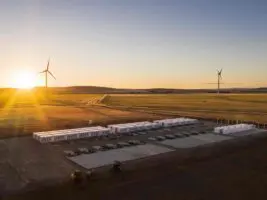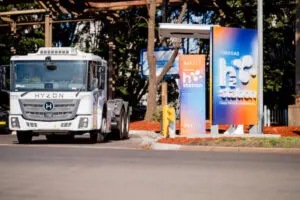The fossil fuel industry’s moves to associate itself with some of Australia’s major sporting events face renewed scrutiny, with calls for fossil fuel sponsorship to be subject to similar bans imposed on tobacco advertising.
This week, Tennis Australia announced that it had ended a sponsorship arrangement with oil and gas company Santos early. The sponsorship deal covered Santos’ logo being featured in on-court signage at both the ATP Cup and Australian Open and was supposed to run across multiple years starting at the 2021 Australian Open.
While Tennis Australia has not provided detailed reasoning behind the cancellation of the partnership with Santos, it is likely to have been influenced by growing calls within the sporting community for stronger action on climate change.
The Climate Council’s director of research, Dr Martin Rice, said that the action taken by Tennis Australia should serve as a prompt for other sporting authorities to reconsider their associations with fossil fuel companies, including Rugby Australia and the Tour Down Under cycling event – both of which are also sponsored by Santos.
“Santos is a huge contributor to climate change, and yet it’s sponsoring some of our most beloved sports including Rugby Australia and the Santos Tour Down Under, the largest cycle race in the southern hemisphere that is taking place right now in South Australia,” Rice said.
“Other fossil fuel sponsored sporting codes must take note of this move by Tennis Australia and kick fossil fuel-backed companies into touch. Sporting clubs and codes can also rapidly cut their own greenhouse gas emissions by changing the way they build venues, power events, travel and by cutting waste.”
Rice compared the movement against fossil fuel advertising to that experienced by the tobacco industry. Cigarette companies had been major sponsors of Australian and international sporting events, but such practice has been entirely stopped by bans introduced once the harm caused by smoking became wildly recognised.
“Fossil fuel companies sponsoring our sporting events, from a professional to community level, makes as much sense as if they were being supported by the tobacco industry. We ditched tobacco sponsorship in sport, now we need to do the same for polluting coal, oil and gas companies, which are driving worsening climate change and putting the future of sports at risk,” Rice said.
Fossil fuel companies have sought to associate their brands with sporting teams and events to improve corporate reputations that have been dented due to growing concern about their contributions to climate change.
Adani’s Australian brand, Bravus Mining & Resources, secured a sponsorship deal with the North Queensland Cowboys rugby league team last year. Australian petroleum company Ampol has also secured the naming rights to rugby league’s State of Origin series until 2023.
Western Australia’s ‘Nippers’ program, which teaches children between the ages of six and thirteen how to safely swim in surf conditions, has faced criticism for receiving sponsorship from oil and gas company Woodside.
Children participating in the Western Australian Nippers program receive a Woodside branded uniform to participate in the program.

Many forms of sport have become particularly vulnerable to the impacts of climate change, including the summer sports of tennis and cricket, which have seen an increased frequency of events played in extreme temperatures.
Players at the Australian Open currently being played in Melbourne have battled through high temperatures, with several leading players complaining of the pressures on players to continue matches in hot conditions.
During the 2019-20 summer, several sporting events were postponed or cancelled due to the impacts of bushfire smoke – produced by the devastating and climate change fuelled ‘black summer bushfires’ – that made sporting events played outside unsafe.
English cricket captain Joe Root was hospitalised during the 2017-18 Ashes series, after suffering extreme dehydration during the Sydney Test, with local temperatures exceeding 40 degrees and peaking around 57 degrees in the middle of the Sydney Cricket Ground.
Such events have prompted athletes and climate advocates alike to call for stronger climate change policies from governments and a severing of ties between sporting events and the fossil fuel companies producing the oil, gas and coal products that are contributing to worsening climate change.
Climate change activists have threatened to disrupt the Tour Down Under cycling event – currently underway in South Australia – due to the event’s sponsorship arrangement with Santos.
We're down at the finish line for Stage 2 of the Women's Race in Echunga.
Keeping the pressure on @EventsSA and @SantosLtd.
We should not allow dirty fossil fuel money to taint the #TDUFestival. pic.twitter.com/4lOiFu4ocf
— Extinction Rebellion South Australia (@XRSouthAus) January 24, 2022
Other fossil fuel sponsorship partnerships have also faced ongoing scrutiny, including those that have seen fossil fuel companies sponsor educational events and materials, such Shell’s long-time financial support for the national science and technology centre, known as Questacon, in Canberra.
Questacon has defended the relationship with Shell and another sponsorship arrangement it has with gas producer Inpex, saying the institution retains editorial control over the educational materials it produces.
Questacon has, however, produced materials – intended for an audience of school children – that promotes gas as a transition fuel.
https://twitter.com/timinclimate/status/1412710532570697731










